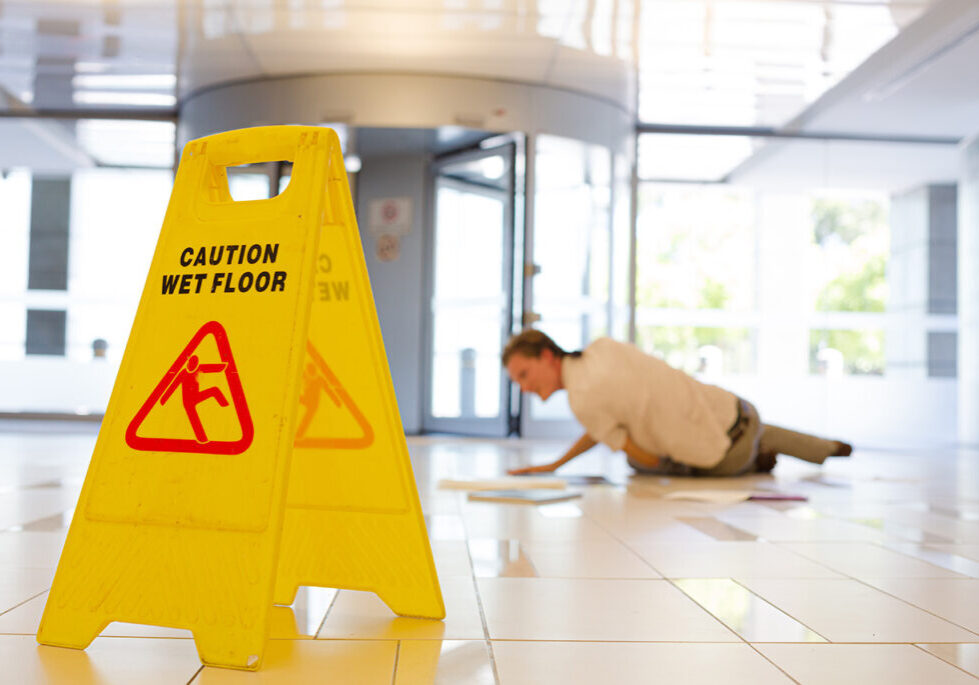Slip-and-fall accidents can be life-altering, causing serious injuries that may require extensive medical care and lead to lost wages, steep medical bills, as well as other damages. Unfortunately, these accidents are not uncommon. In fact, slips and falls are responsible for an estimated 1 million hospitalizations per year.
If you have been injured in such an accident, it’s important to understand your rights and how California laws apply. This blog post will help explain these key points so you can make an informed decision about how to proceed.
How is Fault Determined in a Slip-and-Fall Accident?
Comparative Fault Laws
Determining who is at fault in a slip-and-fall accident in California can be complicated. It all depends on the context as the state’s comparative fault law, also known as “comparative negligence,” allows the plaintiff to recover damages even if he or she is found partially liable.
For instance, if both you and a business owner were determined to be partially at fault for your slip-and-fall accident — you weren’t paying attention when walking through the store — the court could assign each party separate percentages of liability based on who was more negligent or reckless than the other.
In fact, since California is a pure comparative fault state, victims can recover damages even if they are determined to be 99% at fault. In modified comparative fault states, on the other hand, plaintiffs who are 50% or more at fault are barred from compensation.
If a settlement cannot be reached, a jury will determine what percentage of fault can be attributed due to the victim’s own negligence (California Civil Jury Instruction 405). That percentage is then deducted from the victim’s awards (a $100,000 award will be reduced to $90,000 if the victim was determined to have been 10% at fault).
To determine who was at fault, certain questions can help establish liability:
- Were there any hazardous conditions known ahead of time or that should have been noticed?
- Was an appropriate warning provided?
- Did both parties exercise reasonable care?
- Also, if the injury is caused by a slip and fall at a store or supermarket, one has to investigate whether they have sweep sheets and if the store followed the standard protocol. This is for another time to discuss.
The Basics of Negligence Law
Under California law, negligence is when someone’s actions or inactions lead to harm to another person. For example, if you slip and fall in a store because the owner failed to clean up a spill, the owner could be held liable for your injuries.
To determine negligence, courts look at the following elements:
- Duty of care — Did the other party have an obligation to keep their premises safe?
- Breach of duty — Did they fail to meet that obligation?
- Causation — Did their failure directly cause your injury?
- Damages — Were there actual damages?
Understanding Premises Liability
In the context of slip-and-fall cases, the concept of premises liability applies. This is when property owners are held responsible for accidents on their premises due to unsafe conditions. Landlords are also typically held liable for any accidents on their property as long as they were aware — or should have reasonably been aware — of any potential dangers.
In California, businesses generally have an obligation to ensure that customers will not suffer harm while on their premises. If they fail to do so and someone gets injured, they may be found negligent.
In one notable case, Penney & Associates helped a teenage victim receive a $295,000 settlement after she sustained serious injuries to her knee during a club volleyball game at UC Santa Barbara’s Event Center. Following a jump, the 15-year-old landed on a portable referee stand, causing injuries that eventually would result in the loss of a valuable scholarship to a major university. The plaintiff contended that UCSB was negligent by failing to replace the recently installed stands with ones that did not protrude as much.
Penney & Associates Can Help
If you have suffered an injury from a slip-and-fall accident, know your rights under California law—especially if someone else may have been at fault. The experienced team of personal injury attorneys at Penney & Associates can help walk you through every step necessary to receive maximum compensation for your losses. Schedule a free consultation to learn more.



